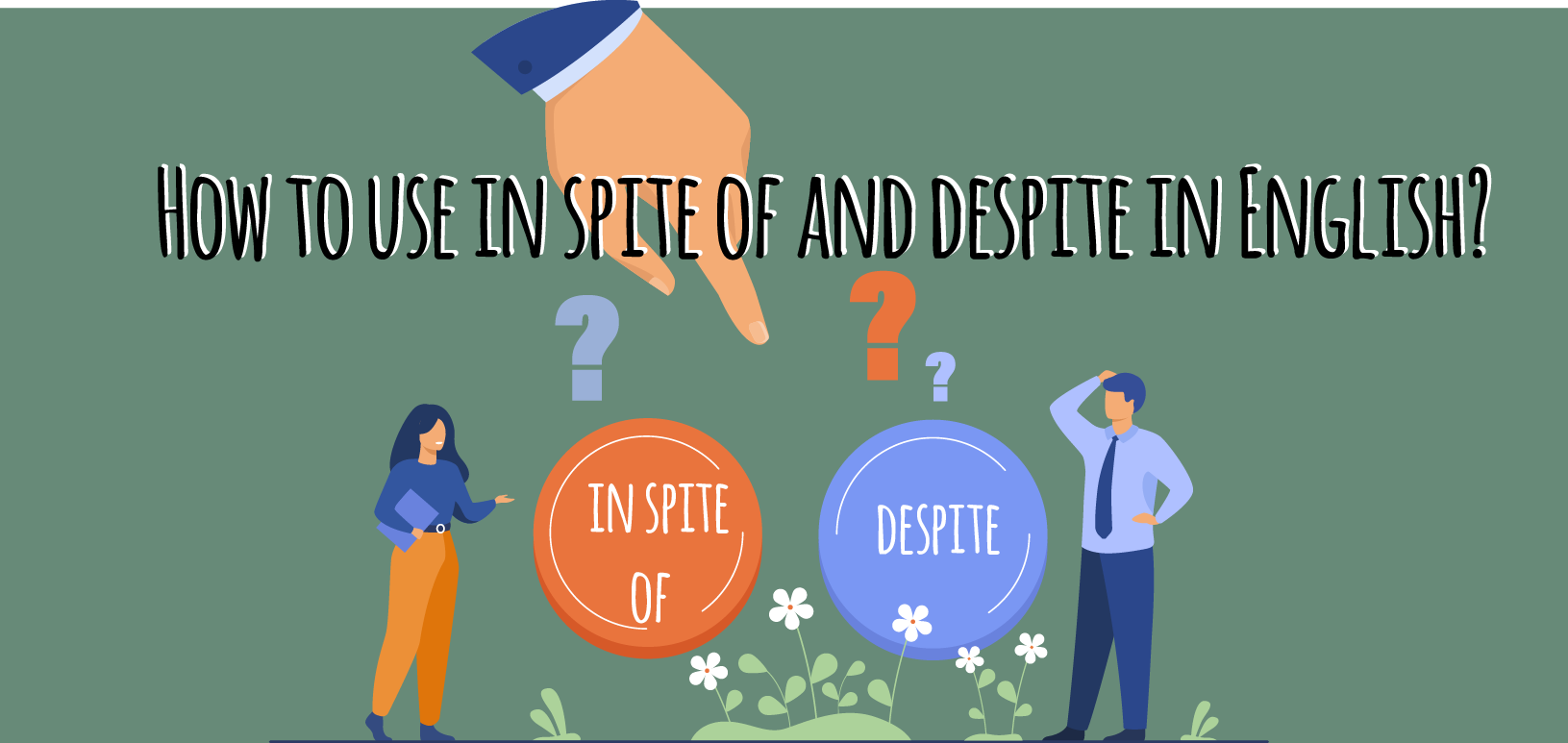How to use in spite of and despite in English?

How to use in spite of and despite in English?
INDEX OF CONTENTS
- What is the difference between in spite of and despite?
- When to use despite or In spite of
- We summarize
Everyone knows very well that English is a very interesting language because it offers a great variety of nuances, has ambiguous words and also synonyms so similar that they can create a bit of confusion in students of other languages. That is why in this article we have thought it appropriate to face one of those challenges that is worth addressing and studying.
Sometimes the differences in language don’t just come down to a right or wrong choice . Style itself can make one word or phrase preferable to another, but neither is wrong for that.
This happens to us with despite vs. in spite of (despite vs. despite). These phrases mean the same thing and are basically interchangeable, but practice frequently tells us that one is probably a smarter choice for some writing contexts.
What is the difference between In Spite of and Despite (despite and despite)?
In this article, we are going to compare the prepositions in spite of vs. despite and we will provide you with sample sentences for both terms.
When to use In Spite Of (a pesar de)
When should we use the definition of despite or the in spite of definition of (a pesar de) being equal? What does it mean in spite of? Although in English it is a preposition of phrases. It means not being affected by something. You can see the correct use of this phrase in the following sentences.
- Congress passed the bill, in spite of frequent objections from vocal constituents. / (El Congreso aprobó el proyecto de ley, a pesar de las frecuentes objeciones de los votantes).
- In spite of being on a diet, I ate some mushroom risotto anyway / (A pesar de estar a dieta, me comí un poco de risotto de champiñones).
- My daughter went to the basement to get the cat food, in spite of her fears. / (Mi hija fue al sótano a buscar comida para gatos, a pesar de sus miedos).
When to use Despite
Let’s define despite to define in spite. What does despite mean ? Despite is also a preposition. Like in spite of, it also means that it is not affected by something.
Here are some examples:
- Despite the best efforts of those who would oppose me, I have emerged victorious. / A pesar de los mejores esfuerzos de quienes se oponían a mí, salí victorioso.
- Corey ordered a sausage and onion pizza, despite being vegan. / Corey pidió una pizza de salchicha y cebolla, a pesar de ser vegano.
- Arturo continued to argue, despite knowing that he was wrong. / Arturo siguió discutiendo, a pesar de saber que estaba equivocado.
Despite or In Spite Of? When to use each
Both In spite of and despite are prepositional phrases and share the same definition . Therefore, they are, in most cases, interchangeable.
You can probably choose any of the terms in your own writing. Academic and professional writing values brevity, despite being the most attractive option in these formal settings. In other contexts, you can choose to let the prosody of the sentence determine which phrase sounds the most natural.
For formal writing, remember that they are one-word phrases that begin with the letters of . Since choosing despite is a clever move in formal writing, you may remember that this word is more appropriate in these settings. Despite being a better option for formal writing, where the economy of words is important. You must remember that it is a clever choice for these contexts, as both words begin with the letters of.
We summarize
Despite or in spite of? Despite and in spite of are prepositions that each means that it is not affected by something. In most cases they are interchangeable, becoming more popular from around 1960.
Despite is perhaps a better option for formal writing , where the economy of words is important. You must remember that it is a clever choice for these contexts, as both words begin with the letters of.
Finally, however, let’s see the following sentence: Despite he was hungry, John did not eat = Although he was hungry, John did not eat. (Incorrect)
Why is it wrong? Well simply, because the words despite and in spite (a pesar de) are prepositions, not subordinate conjunctions. This means that after these words, you only need one noun. You cannot put a clause that has a subject and a verb.
Before leaving, do not forget to review the next calls with which to obtain your official title .


